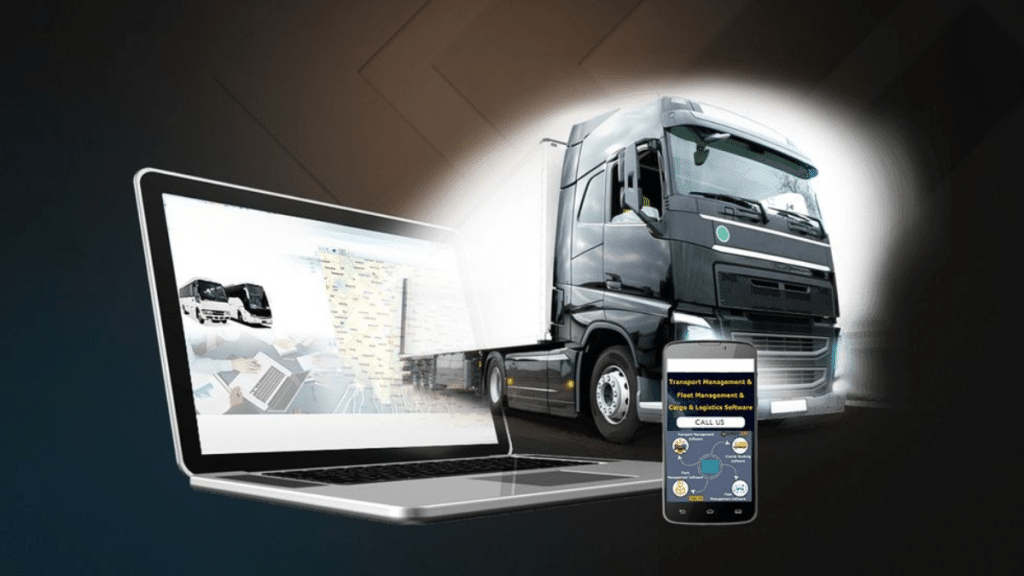In today’s fast-paced transportation industry, efficient management of logistics operations has become essential for staying competitive. Trucking Transportation Management System (TMS) software offers a technological solution that helps freight companies streamline their operations, cut costs, and increase productivity. This article examines what trucking TMS software is, its key features, benefits, and why it might be the right choice for your transportation business.
What is a trucking TMS software?
Trucking TMS software is a specialized technology platform created to help transportation companies manage and optimize their entire logistics operations. This system serves as the central hub for planning, executing, and tracking shipments while providing valuable data analysis capabilities. Unlike general TMS platforms, trucking-specific TMS solutions are built with the unique challenges and requirements of the trucking industry in mind.
A quality trucking TMS integrates with existing business systems to create a seamless flow of information across departments. From dispatch and routing to billing and customer service, the software connects all aspects of a trucking operation into one accessible system. Modern trucking TMS platforms are increasingly cloud-based, allowing for real-time updates and remote access from anywhere with internet connectivity.
Key features for a trucking TMS software
The most effective trucking TMS solutions include several essential components that address specific industry needs:
Route optimization and planning: Advanced algorithms calculate the most efficient routes considering factors like traffic patterns, delivery windows, driver hours of service, and fuel consumption. This capability helps minimize miles driven while maximizing loads delivered.
Load management: The system allows dispatchers to match available trucks and drivers with incoming freight orders based on location, equipment compatibility, scheduling, and other criteria.
Real-time tracking and visibility: GPS integration provides up-to-the-minute location data for all vehicles in the fleet, allowing managers to monitor progress and update customers about shipment status.
Electronic logging device (ELD) compliance: Modern trucking TMS platforms include features that help companies adhere to hours-of-service regulations through automatic logging of driving time.
Analytics and reporting: Comprehensive data collection and analysis tools offer insights into key performance indicators like on-time delivery rates, fuel efficiency, driver performance, and profitability by customer or lane.
Customer portal access: Many systems include a client-facing interface where customers can place orders, track shipments, and access documentation without needing to call or email.
Mobile functionality: Driver-focused mobile apps allow for electronic proof of delivery, communication with dispatch, and access to important route information.
Billing and accounting integration: The software streamlines financial processes by automatically generating invoices based on completed deliveries and integrating with accounting systems.
Benefits of using trucking TMS software
Implementing a trucking TMS solution offers numerous advantages that affect both operational efficiency and bottom-line results:
Cost reduction: Through better route planning, improved asset utilization, and reduced empty miles, companies typically see a significant decrease in operational costs. Studies show that TMS implementation can reduce transportation costs by 5-10% annually.
Improved customer service: With better visibility into shipment status and more reliable delivery times, trucking companies can provide superior service to their clients. The ability to offer accurate, real-time updates builds trust and strengthens customer relationships.
Increased efficiency: By automating manual processes like data entry, dispatch communications, and paperwork handling, staff members can focus on higher-value activities rather than administrative tasks.
Better decision-making: Access to comprehensive data about fleet performance, costs, and service levels enables managers to make informed strategic decisions based on actual results rather than guesswork.
Regulatory compliance: Built-in features help ensure adherence to Department of Transportation regulations, hours-of-service rules, and other legal requirements, reducing the risk of fines and penalties.
Driver satisfaction: More efficient routing and scheduling can lead to better quality of life for drivers, helping with retention in an industry facing chronic driver shortages.
Environmental impact: Optimized routes and reduced empty miles translate to lower fuel consumption and smaller carbon footprints, supporting sustainability goals.
Why choose trucking TMS software?
Selecting the right trucking TMS solution for your business involves considering several factors:
Scalability: The best systems grow with your business, handling increasing volumes without performance degradation.
Integration capabilities: Look for solutions that connect smoothly with your existing technology stack, including accounting systems, warehouse management software, and customer relationship management tools.
User-friendliness: An intuitive interface reduces training time and increases adoption rates among staff members.
Support and training: Reliable vendor support during implementation and beyond helps ensure you get maximum value from your investment.
Return on investment: While TMS solutions require an initial investment, the right system typically pays for itself through operational savings within 6-18 months.
Industry-specific functionality: Choose a system designed specifically for trucking operations rather than a general logistics platform that might lack essential trucking-focused features.
Transportation companies that implement well-chosen trucking TMS software typically report improved operational control, better asset utilization, and enhanced ability to scale their business without proportional increases in administrative overhead.
The transportation landscape continues to evolve with changing customer expectations, regulatory requirements, and competitive pressures. A robust trucking TMS provides the technological foundation needed to adapt to these changes while maintaining operational excellence.
Ready to learn how trucking TMS software can transform your transportation business? Take the next step today:
- Request a free consultation to identify your specific needs
- Sign up directly for our trucking TMS solution
- Complete our contact form to speak with a knowledgeable representative
- Call our dedicated support line for immediate assistance
Make the smart choice for your trucking operations with a TMS solution built for the unique demands of today’s transportation industry.
